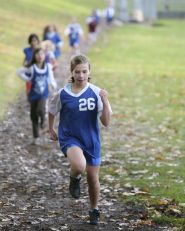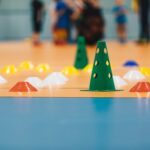Special Educational Needs (SEN) is a serious issue for schools, with almost 3% of all students having a statement of SEN and a further 16-17% having no statement, but still having SEN (DfE).
This means that one in every 5 students needs some form of extra help in the classroom. Now add to this the fact that the overwhelming majority of teachers report that persistent low-level disruption is impacting on learning in the classroom and you can see that even so called minor learning disabilities can cause wider issues (BBC).
Sport can step into this growing problem like a knight in shining armour, and before you laugh at the analogy and stop reading, there is a rapidly growing body of science to back this up. There are, in basic terms, two forms of support that regular sport gives to students with SEN.
The first is the more obvious confidence building. Sport has shown to build self-confidence, team building and teach children to win and lose well. Taking part in sports improves health and blunts the edges of hyperactivity and other symptoms of some disorders that are relatively common in the classroom.
Sport can take a step further and treat not just the symptoms, but make effective changes on the actual condition. Studies have shown that sport can be used to treat at least two major conditions, and treat them effectively. ADHD and dyslexia are the two that the studies have focused on, but there are also studies showing that regular exercise can help anxiety, depression and conditions relating to low self-esteem.
For ADHD many professionals have prescribed sport to work with, or instead of medicines. The attention deficit part of the name is in fact a problem with what to focus on.
The parts of the brain that decide what to focus on, and the part that controls impulses, don’t act in the same way as those with a neurotypical brain.
Sport helps to stimulate these areas and helps with focus, impulse control and a number of areas that mean that students with ADHD may mean they struggle with school work and the classroom environment. Added to this the strict schedule that sports can impose on those that have no sense of time or ability to impose their own schedules and give them a routine and timetable they need.
A study observing boys with ADHD aged 8-11 taking martial arts twice a week showed they finished more of their homework, were better prepared for class, broke fewer rules and stayed in their seats more often.
For those with symptoms of dyslexia a study in 2003 gave real promise of true help. Students undertook 10 minutes of fine motor skills training twice a day for six months, compared to students not following the regime, these students showed improved reading and writing, fluency, cognitive skills, dexterity and balance.
For students struggling with school due to many of the conditions known to be on the autistic spectrum and related conditions sport may be the difference between academic success and failure.









